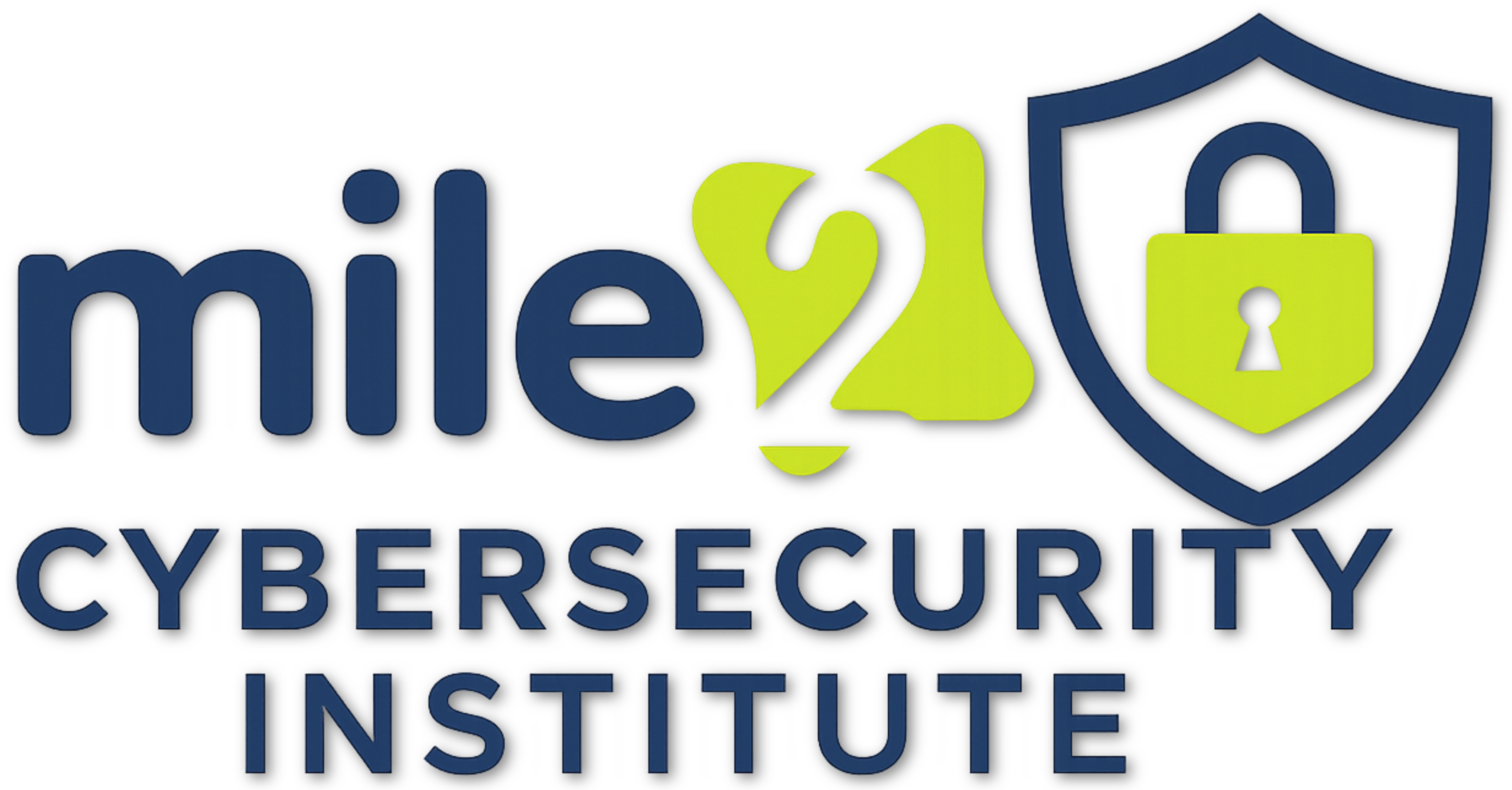OCU C)SP D Week 01 Lesson 03 Discussion
Tagged: Derrick - WK 3
- This topic has 17 replies, 9 voices, and was last updated 1 month, 4 weeks ago by
Derrick Adams.
-
AuthorPosts
-
-
March 28, 2022 at 11:28 am #65903
Jessica Jagerson
KeymasterDiscuss some of the potential risks associated with mobile devices for 2022 and how they can potentially affect mobile device users.
-
October 3, 2025 at 5:02 pm #109236
Misty Stewart
ParticipantIn 2022, mobile phones faced a growing number of security threats that made users more vulnerable than ever. Many harmful apps were disguised to look trustworthy, tricking people into downloading them and unknowingly giving away personal information like passwords, banking details, or location data. These apps could also damage the phone’s performance or open the door for further attacks. Scams became more advanced too—fake texts, emails, and social media messages often looked convincing and were designed to fool users into clicking dangerous links or sharing sensitive information. Public Wi-Fi networks added another layer of risk, since many lacked proper security, allowing hackers to intercept data or spy on online activity. Devices that weren’t updated regularly were especially at risk, as outdated software often had known weaknesses that attackers could easily exploit. These issues didn’t just affect individuals, they also posed a threat to workplaces, since compromised phones could give hackers access to company systems and data. As mobile phones became more central to everyday life, both personally and professionally, the impact of these threats grew more serious. That’s why it’s so important for users to stay alert, keep their devices updated, avoid suspicious links, and use strong security settings to protect themselves.
-
October 5, 2025 at 8:56 pm #109267
Teisha Nolen
ParticipantGreat post, Misty! You have highlighted some serious mobile security concerns. It’s unsettling how easily a disguised app or convincing text can compromise not just personal data, but entire company systems. With mobile phones now acting as minicomputers in our pockets, we are opening ourselves up to these threats. Public Wi-Fi, outdated software, and overly trusting clicks are gateways for attackers. I believe many users still underestimate the risks. A single compromised device can expose sensitive business data, making mobile security not just a personal responsibility but a workplace priority as well.
How often do we actually review our app permissions or update our devices intentionally? In a world where convenience often wins, how can we balance ease of use with proactive protection? Is there a mobile habit you think people should change to stay safer?
-
-
October 3, 2025 at 6:56 pm #109238
Mjulius513
ParticipantMobile devices have many risks that can seriously affect users. One major risk is data leakage, where apps collect too much personal information, like contacts, location, and photos, and share it without permission. Malware and fake apps are also common threats; they can steal passwords, banking details, or even take control of the device. Phishing attempts through text messages or emails can trick users into giving away sensitive information. Using unsecured public Wi-Fi is another danger, as hackers can intercept data and steal login details. If a phone is lost or stolen, users are at risk if the device isn’t locked or encrypted, allowing strangers to access private files. Outdated software can also leave devices open to known security attacks. Privacy is a concern, too, because many apps track users’ locations and habits. Since mobile devices often connect to smart home gadgets and wearables, a hacked phone could also compromise other personal systems. All these risks can lead to identity theft, financial loss, loss of privacy, and exposure of sensitive work or personal data.
-
October 5, 2025 at 9:31 pm #109268
Addison West
ParticipantI really like how you explained the risks of mobile devices. You made a great point about data leakage and how apps often collect more than they need. I also agree with what you said about phishing and public Wi-Fi, it’s easy for people to overlook those dangers. Mentioning outdated software and smart home connections was smart too, since a hacked phone can affect much more than just the device. Overall, your post is a clear reminder of why locks, updates, and security steps are so important.
-
October 10, 2025 at 5:43 pm #109417
Trae Johnson
ParticipantThis is clearly outlined how various threats, from data leakage to phishing and malware, can impact users’ security and privacy. I agree that unsecured networks, outdated software, and excessive app permissions all increase vulnerability. As mobile devices become more connected to other systems, protecting them with updates, strong passwords, and encryption is essential to prevent serious harm.
-
-
October 4, 2025 at 11:39 pm #109250
Addison West
ParticipantMobile devices like smartphones and tablets are very useful, but they also come with risks that can harm users if they are not careful. In 2022, one major risk is malware, which is harmful software that can steal personal data, track activities, or damage the device. Malware can spread through fake apps, unsafe websites, or bad links in text messages. Another risk is phishing attacks, where criminals trick users into giving away personal information, like passwords or bank details, by sending emails or messages that look real but are fake.
There is also the risk of data loss. If a device is lost, stolen, or hacked, important information such as photos, contacts, and banking details could fall into the wrong hands. Public Wi-Fi is another danger because hackers can use it to intercept data being sent from a mobile device, such as login details or private messages. Mobile devices are also at risk of spyware and tracking, which can secretly monitor a user’s location or online activity.
-
October 5, 2025 at 10:46 pm #109272
Mjulius513
ParticipantYou made some important points about the risks of using mobile devices. Malware and phishing are serious threats because they can steal personal information or take control of a phone. Fake apps and unsafe links are common ways these attacks spread. Data loss is also a big concern, especially if a device is lost or stolen without security measures like a password or encryption. Using public Wi-Fi can be risky, too, since hackers can intercept private information. It’s also important to mention spyware and tracking, as many people don’t realize how easily their movements and data can be monitored. Overall, your explanation shows why users need to be careful and use security features like strong passwords, regular updates, and trusted apps to protect themselves.
-
-
October 5, 2025 at 8:49 pm #109266
Teisha Nolen
ParticipantMobile devices have become essential to our daily lives, but they also come with serious security risks. In 2022, there were several potential risks with mobile devices. One major threat was phishing and smishing (phishing via text), where attackers tricked users into clicking malicious links or sharing sensitive info. These scams often looked legitimate, making them hard to spot.
Another growing concern was mobile malware and spyware. Some apps—especially those downloaded outside official app stores—were designed to steal data, track activity, or even control devices remotely. Public Wi-Fi also posed risks, exposing users to man-in-the-middle attacks where hackers could intercept communications.
Even seemingly harmless apps could be problematic. Many requested excessive permissions, leading to data leakage without users realizing it. Devices that missed regular updates were left exposed to known security flaws. This was especially true for older Android versions which often lacked timely patches, causing them to be easy targets.
All of this can lead to identity theft, financial loss, and even corporate breaches if work devices are compromised. Staying informed, using mobile security tools, and being cautious with downloads and links are key steps to staying safe.-
October 6, 2025 at 12:13 pm #109289
Misty Stewart
ParticipantHi Teisha~ You gave a clear and helpful summary of the new security risks with mobile devices. I like how you explained that phishing and smishing tricks are getting smarter and can fool even people who know a lot about technology. Your point about apps asking for too many permissions is important, because many people don’t realize how much personal information they’re sharing. You also mentioned that using old devices, especially older Android phones, is risky and shows why it’s important to keep devices updated. Overall, your message is a good reminder that mobile security isn’t just about technology, it’s something we need to think about every day. As you said, staying aware and careful is key to keeping our personal and work information safe.
-
-
October 6, 2025 at 12:14 pm #109290
Caleb Kiser
ParticipantMobile devices have become an almost unnecessary essential in today’s world. We rely on them for communication, work, entertainment, and more, but that convenience comes with risks. In 2022, common threats included malware, phishing attacks, data breaches, and insecure Wi-Fi, all of which allowed hackers to steal information or access devices remotely.
Today, those same problems still exist but have grown more advanced. Apps constantly collect data, and AI driven scams are harder to spot. Beyond security risks, phone addiction has become a real issue, leading to constant distractions, anxiety, and less face to face connection. Mobile devices are powerful tools, but without awareness and balance, they can threaten both our privacy and our well being.
-
October 6, 2025 at 4:32 pm #109312
Carlos Martes
ParticipantHello Caleb!
Great points i should say. I agree that mobile threats have grown more advanced with AI-driven scams and data collection. your mention of phone addiction is also important because it often is overlooked as a security and mental risk. Awareness, balance and consistent device updates are essential to maintaining privacy and well being. -
October 10, 2025 at 5:55 pm #109418
Trae Johnson
ParticipantI would agree that mobile phones have turned indispensable and perilous. With the evolution of AI-powered scams and round-the-clock data harvesting, digital vigilance is more important than ever. Apart from cybersecurity, the psychological and social impacts of excessive use underscore the necessity of boundaries. With responsible use, we can harness the utility of technology without compromising privacy or well-being.
-
-
October 6, 2025 at 4:29 pm #109311
Carlos Martes
ParticipantMobile devices face several potential risks that continue to evolve with technology. One major risk is malware, often disguised as legitimate apps or downloads, which can steal data, track activity, or gain unauthorized access to accounts. Phishing attacks have also increased, where hackers send deceptive messages through email, txt or social media to capture login credentials or financial information. Additionally, public WIFI networks pose serious security threats because they allow attackers to intercept data or inject malware. Another concern is outdated software, which leaves devices vulnerable to known exploits. Lost or stolen devices can also expose personal and corporate information if proper encryption or remote wipe features are not enabled. To protect themselves, users should regularly update software, avoid suspicious links, use strong passwords, enable multifactor authentication, and connect only to secure networks. These precautions significantly reduce the risk of compromise and safeguard data.
-
October 6, 2025 at 9:42 pm #109316
Addison West
ParticipantYou did a great job explaining the different risks that come with using mobile devices. I like how you mentioned malware and phishing since those are two of the biggest threats most people face every day. Your point about public Wi-Fi was also really good, many people don’t realize how easy it is for hackers to steal data on open networks. I also liked that you included outdated software and lost or stolen devices, since those are simple but serious risks that are often ignored. The tips you gave for protecting devices, like using strong passwords, turning on multifactor authentication, and keeping software updated, were very practical and easy to follow. Overall, your post does a great job showing how mobile users can stay safe and protect their personal information in today’s digital world.
-
October 6, 2025 at 9:47 pm #109317
Caleb Kiser
ParticipantHi Carlos,
I enjoyed reading your discussion post. You made some great points about mobile device risks. I agree that malware, phishing, and public Wi-Fi are major threats, especially as technology keeps advancing. I’d also add that keeping software updated and using strong passwords are simple but powerful ways to stay protected. It’s crazy how something so essential in our daily lives can also be such a big security risk if we’re not careful.
-
-
October 7, 2025 at 7:38 am #109329
Trae Johnson
ParticipantSome of the dangers that mobile phones presented in 2022 were malware, phishing, data breaches, and unsecured app permissions. Mobile malware was still increasing, typically hidden in seemingly harmless apps purchased from unauthorized app stores. Installed, the harmful codes had the ability to snatch away user details, track location data, or even take over the device. Phishing was also on the rise, with perpetrators using text messages and fake login pages to trick users into entering sensitive information such as passwords or bank details. Public Wi-Fi networks also posed security threats by allowing data interception by attackers, thus potential identity theft or unauthorized access. Poor app permission management was the second concern. Many apps requested access to microphones, images, or contacts unnecessarily, boosting privacy risks. Finally, outdated operating systems or refusal to update to plug holes for security vulnerabilities exposed other devices to exploits and ransomware. Users must minimize these threats by downloading apps from their original providers, updating devices, using strong passwords and two-factor authentication, and avoiding sharing sensitive data over non-secure networks.
-
October 18, 2025 at 7:18 pm #109764
Derrick Adams
ParticipantIn 2022, the biggest risks around mobile devices were less about fancy exploits and more about everyday gaps. Lost or stolen phones still lead the list and once a device is in someone’s hands, unprotected screens and weak PINs expose email, messages, and saved passwords. Out-of-date operating systems and apps open the door to malware and browser attacks. Smishing (phishing by text) tricks users into installing bad apps or giving up MFA codes. Public Wi-Fi, Bluetooth, and NFC add exposure if they are left on or used without protection. Many apps also collect more data than they need, which creates quiet leakage through backups and cloud sync. In workplaces, BYOD raises the stakes because a single infected or rooted phone can reach company mail and files.
Strong screen locks and biometrics, device encryption and auto-lock, updates turned on, cautious app installs with limited permissions, and MFA for all accounts. For organizations, mobile device management with remote wipe, VPN, and least privilege access keeps personal phones from becoming a company breach.
-
-
AuthorPosts
- You must be logged in to reply to this topic.


